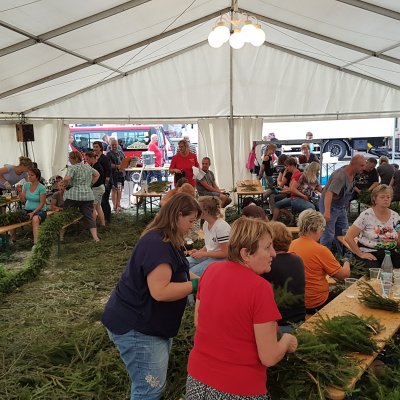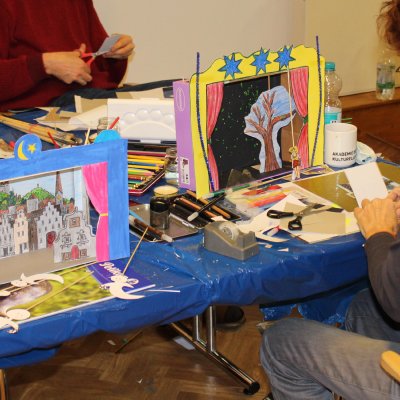Nationwide Inventory of Intangible Cultural Heritage
The Traditions of Schwörtage in the Former Free Cities

The Schwörtag (oath-day) traditions are based on medieval models. The municipalities constituted themselves by a joint public oath of the head of the city, the council and the entire citizenry to the respective city constitution.

Facts & Figures
- Crucial date: Once a year in summer
- Inscription: 2021
- Domain: Social practices, rituals and festive event
- Where to find: Former Free Cities
The rituals have their origin in the political culture in the imperial cities of the Holy Roman Empire. The imperial cities largely governed themselves until the dissolution of the Holy Roman Empire, thus maintaining relative independence.
Revival after 1945
After 1945, the former imperial cities of Ulm, Reutlingen and Esslingen revived the Schwörtage to symbolically emphasize their democratic traditions. The traditional locations of the swearing ceremony and the objects, such as the swearing stick and swearing bell, also underpin this.
The official swearing-in ceremony is at the heart of the swearing-in days. In Ulm and Reutlingen, only the mayor swears an oath, while in Esslingen the municipal council also takes an oath. In all three cities, the head of the city gives an account of the past year to the citizens and presents their further programme.






Oath-swearing and city festivals
The oath-swearing ceremony is followed by town festivals, which themselves have a long tradition. In Ulm, the citizens celebrate a traditional water parade (Nabada) and the historical coopers' dance. In Reutlingen, the flags of the winegrowers' guild and the guild flags play an important role.
Celebrations of civic engagement
Today, Schwörtage (oath-days) remain on the list of key city festivals and play an important role in the collective consciousness of residents. The traditions of Schwörtage strengthen the municipal democracy and participation of all citizens. The pledge constitutes the social cohesion and peaceful conflict resolution in the cities and reinforces that all participants follow the municipal laws. They relate to historical connections and commonalities between former imperial cities, especially in the southwest of Germany. As city festivals, they are important components of the city's cultural programme and an important element of civic engagement.




